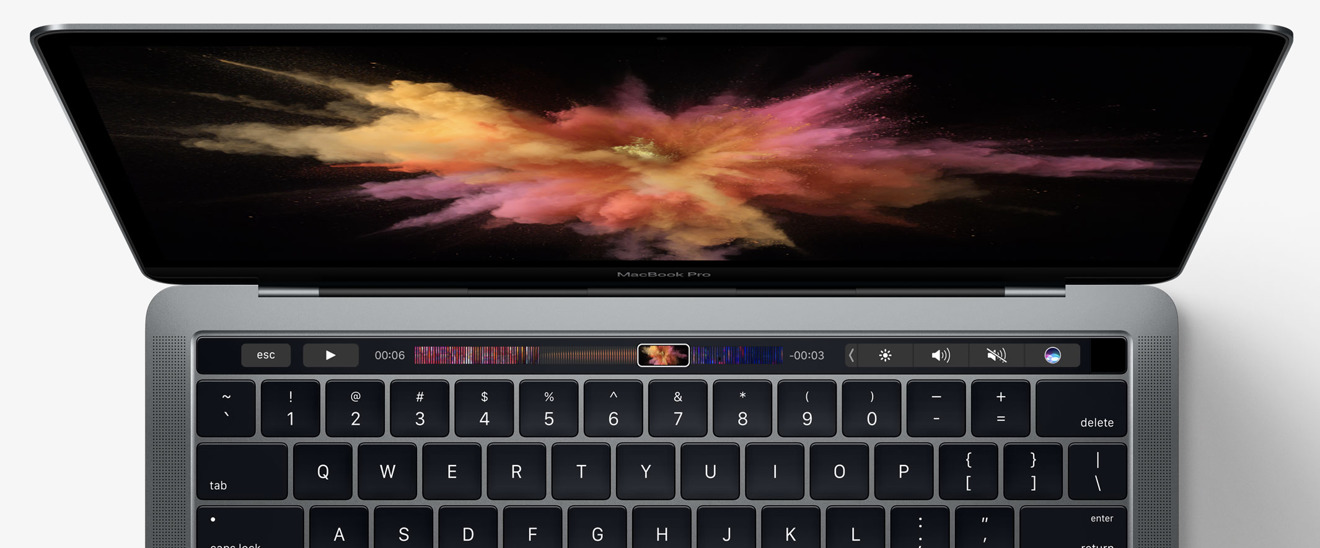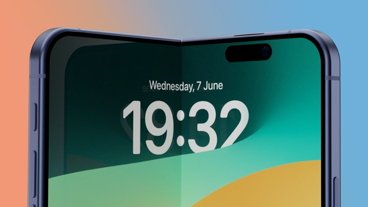Examination of the beta code for macOS Sierra 10.12.4 has revealed a trio of Kaby Lake processors referenced, which has pointed to specific processor substitutions for a possible MacBook Pro refresh using Intel's new processor line.
Three motherboard identifiers and power management data sets have been identified in the beta code by Pike's Universum, and first reported upon by MacRumors, corresponding to Kaby Lake processors in the MacBook Pro both with and without Touch Bar.
According to the blog post, the i5-6360U processor at 2.0 GHz in the 13-inch MacBook Pro with Function Keys can be replaced with the Kaby Lake i5-7260 running at 2.2 GHz. Similarly, the i7-6660U 2.4 GHz processor's counterpart is the Kaby Lake i7-7660U 2.5 GHz chip.
The 13-inch MacBook Pro with Touch bar has similar swaps. The i5-6267U at 2.9 GHz, the i5-6287U 3.1 GHz, and i7-6567U 3.3 Ghz processors can be replaced by the Kaby Lake 3.1 GHz i5-7267U, the 3.3 GHz i5-7287U, and the 3.5 GHz i7-7567U processors, respectively.
For the 15-inch 2016 MacBook Pro, the 2.6 GHz i7-6700HQ, 2.7 GHz i7-6820HQ, and 2.9 GHz i7-6920HQ are able to be upgraded in a future MacBook Pro model after the code is implemented to i7-7700HQ at 2.8 GHz, i7-7820HQ 2.9 GHz, and i7-7920 3.1 GHz Kaby Lake processors.
While the Kaby Lake line of processors debuted in the spring of 2016, All of the processors suitable for "drop-in" with the new Sierra code in a future MacBook Pro were announced at the 2017 Consumer Electronics Show. The CPU in the 2016 MacBook Pro is not socketed, and is not replaceable by the end-user.
Processing power isn't appreciably increased with the Kaby Lake upgrade versus the current Skylake processors. However, power efficiency and on-board GPU capabilities are markedly better.
Regardless of a possible processor upgrade for the MacBook Pro, the RAM cap of 16GB is unlikely to change in the short term. Apple is not expected to engineer a new RAM controller to support DDR4 RAM, nor does the Kaby Lake processor support LPDDR4 RAM. Support for LPDDR4 RAM isn't expected for two more revisions of Intel's laptop and desktop processors.
Reports of a Kaby Lake-based MacBook Pro refresh started circulating in January, with production of a new model slated to begin in Apple's fiscal fourth quarter. A version with 32GB of RAM is possible, according to the rumors, but possibly not arrive until early 2018.
 Mike Wuerthele
Mike Wuerthele







-m.jpg)






 Charles Martin
Charles Martin
 Christine McKee
Christine McKee
 Wesley Hilliard
Wesley Hilliard
 Malcolm Owen
Malcolm Owen
 Andrew Orr
Andrew Orr
 William Gallagher
William Gallagher
 Sponsored Content
Sponsored Content








52 Comments
The sooner the better, for me, as I'm skipping this first release of this brilliant new design with all its included benefits.
I've had my latest gen MBP for a few days now in real world use. Overall the design is very nice. Touch bar is neat but it's pretty annoying not to have hard function keys for brightness/volume/etc. control. My biggest grip is that battery life is disappointing. Not meeting my expectations for Apple. 4-5 hours max for non-intense work seems to be the norm. Other than that, the value proposition really isn't there. Hard to imagine anyone with a 2012 or later MBP (mine was 2010) justifying the upgrade.
Possibly around May or June you could see an update for the MacBook Pro. That would be 6-7 months from the original product release. Sure, this may piss some people off but you can't always have the latest and greatest of something and Apple can't just sit there and do nothing when something IS available for use in an update, especially if it provides something valuable the previous model did not. If they can offer 32GB of RAM as an add-on I think that will silence a lot of the critics. I don't see Apple adding USB-A ports. People are just gonna have to get over that. USB-C is the future and there's no better way to force 3rd party companies to make USB-C products than to make a market for it having products that only support USB-C. The same thing happened when Apple switched to USB from their old I/O.